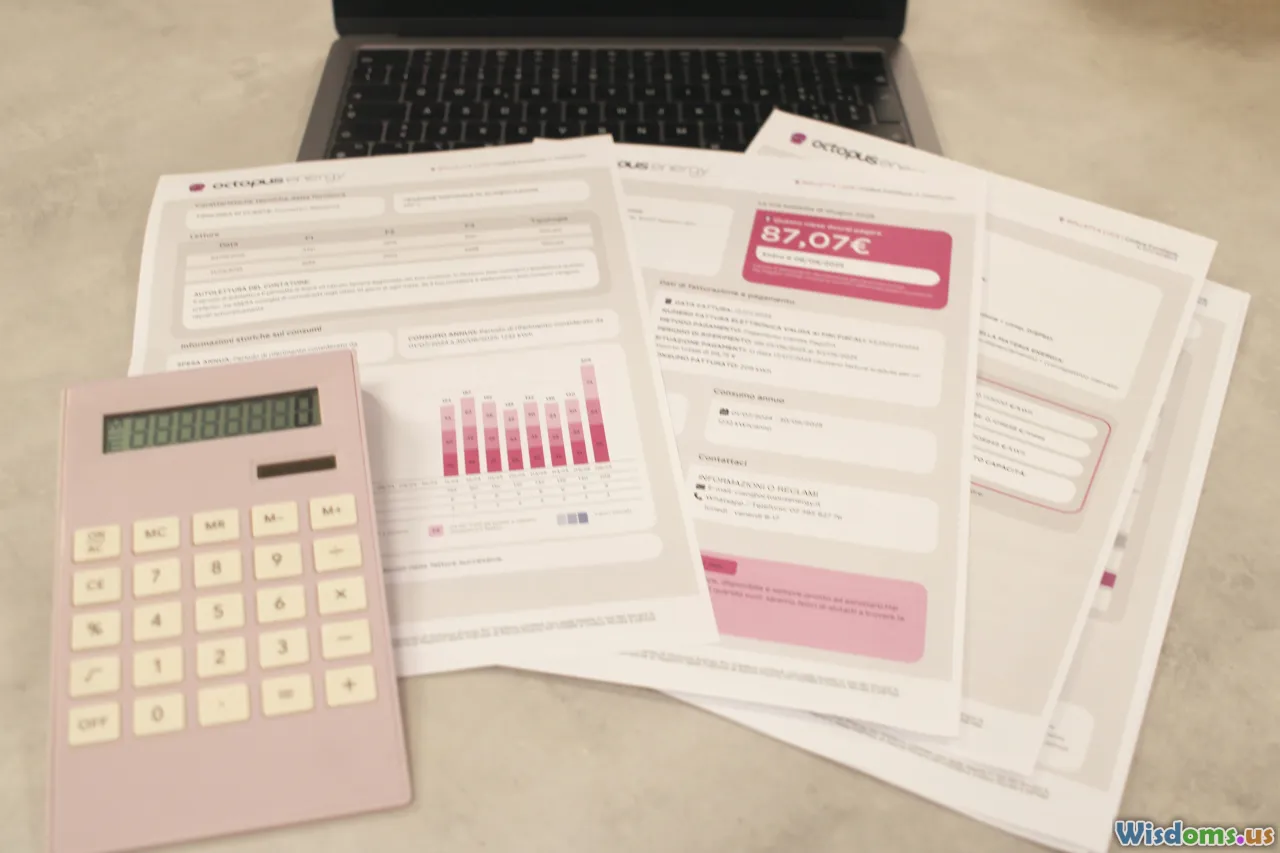
Pregnancy Surprises How Couples Adapt to the Unexpected Together
17 min read Explore how couples navigate unexpected pregnancy changes, growing stronger together through communication, adaptability, and support. (0 Reviews)
Pregnancy Surprises: How Couples Adapt to the Unexpected Together
Few experiences can match the emotionally charged and unpredictable journey of pregnancy. While countless guides lay out what to expect, the truth is that every pregnancy is riddled with moments no book or blog could fully prepare you for. When a surprise occurs—whether joyous or jarring—it tests the resilience, partnership, and adaptability of couples in unique and profound ways. In this article, we explore the unexpected twists of pregnancy and shine a spotlight on the creative, supportive strategies couples use to weather the unknown together.
Embracing the Unexpected: When Surprise Becomes the Norm

In the earliest days, the first unexpected turn might be learning about the pregnancy itself. For nearly one third of pregnancies worldwide, the news is not meticulously planned but rather a spontaneous revelation. From the shock of a positive test result gained during a routine doctor visit, to the partner who finds out while both are grappling with job uncertainty, these first surprises can be both exhilarating and terrifying.
Take Amanda and Lou, a couple from Seattle. "We were planning on pursuing new jobs out of state when I found out I was eight weeks pregnant," Amanda recalls. "Within minutes of learning, our entire future shifted, but we knew adaptability was key."
For couples like them, the most successful adaptation comes from acknowledging emotions, voicing concerns, and making room for both excitement and anxiety. Experts recommend the following actionable steps:
- Open the Conversation: Instead of bottling fear or disappointment, partners who talk openly about their feelings report greater satisfaction and less long-term resentment.
- Reframe the Narrative: Transforming the chaos of a surprise into a shared adventure helps unite couples around the idea of 'Team Us,' ready for whatever comes next.
- Gather Trusted Support: Seeking advice from friends or family who have weathered their own pregnancy surprises can inspire practical wisdom and empathy.
Managing Health Surprises: Navigating Medical Curveballs

Every pregnancy includes unexpected moments—an unplanned hospital visit for bleeding, a sudden diagnosis like gestational diabetes, or the heart-pounding unexpectedness of twins on the sonogram screen. Medical surprises toss even the most organized parents into emotional overdrive.
David and Priya from Houston learned during a routine ultrasound that they were expecting twins rather than a single baby. “We felt elated but terrified—double the joy but double the anxiety about space, money, and health risks,” Priya laughs. In their case, flexibility and teamwork became paramount.
Tips for couples facing health-related surprises include:
- Stay Informed Together: Attending medical appointments as a team ensures both partners hear the same information and can ask questions in real time.
- Shared Research: Couples who delve into reputable resources together become savvy advocates for their family's well-being.
- Lean on Professionals: Don’t shy away from second opinions, counseling, or reaching out to support groups. Many find the reassurance of knowledgeable voices stabilizing.
- Plan, but Prepare to Pivot: Create contingency plans, but accept that health surprises may require rapid adaptation. For example, couples whose babies arrive earlier than anticipated learn to juggle neonatal visits and changing home dynamics on the fly.
Relationship Dynamics: The Stress Test and Strength Builder

Pregnancy—and especially its surprises—have a way of amplifying whatever already exists in a partnership. For some, adversity brings them closer. For others, it stirs up simmering conflicts. Clinical psychologist Dr. Janelle Turner notes, "It's a stress test but also a chance to emerge stronger."
Conflict tends to spike around common concerns: finances, household roles, intimacy, or differing opinions on birth plans. Research published in the Journal of Family Psychology suggests that couples who practice responsive communication during pregnancy are three times more likely to report high marital satisfaction post-birth.
Strategies for reinforcing your bond:
- Make Check-Ins Routine: Weekly or daily chats about feelings, challenges, and little victories keep both partners engaged and empathetic.
- Divide and Conquer: Splitting up new tasks—like scheduling appointments or shopping for baby gear—ensure neither person feels isolated or overwhelmed.
- Seek Counseling: Brief relationship counseling, even when things aren’t acutely strained, has been shown to foster healthy coping in the long run.
Ali and Carl, who struggled with communication during early pregnancy, found that designating 'worry hour'—a set time to express their anxieties without interruption—kept stress manageable and improved their connection.
Lifestyle Shakeups: Redesigning Daily Routines

Surprise changes in energy level, sensitivities to food, or sleep patterns swiftly up-end a couple’s daily habits. Resilience is often tested not by big revelations, but by the pile-up of smaller, everyday adaptations. A sudden craving means learning to cook unusual midnight snacks. Unpredictable morning sickness can derail commutes or business meetings.
From swapping wine for mocktails on date night to rearranging furniture for safer navigation, couples demonstrate flexibility in countless ways. This can take form in:
- Household Role Shifts: Traditionally, couples who challenge gender stereotypes by renegotiating chores and caregiving tasks fare better with unexpected lifestyle shifts. For example, if the non-pregnant partner takes over early grocery runs or nursery assembly, it can ease pressure dramatically.
- Physical Activity and Self-Care: When the pregnancy partner's yoga becomes a couple's activity, or walks replace previous strenuous workouts, both partners maintain well-being and connectedness.
- Time Management Tweaks: New priorities may require giving up or rescheduling work commitments. Sarah, a software engineer, recalls, "I started declining all late meetings and my wife helped me craft work-from-home requests when bed rest popped up unexpectedly."
Financial Surprises: Budgeting for the Unplanned

One of the most anxiety-inducing aspects of surprise during pregnancy is the financial cost. Fewer than 60% of first-time parents accurately anticipate the total expenses—including medical bills, baby gear, leave from work, and more.
Prudent couples learn to recalibrate with these actionable steps:
- Assess Immediate Needs vs. "Nice to Have’s": Make a list prioritizing medically necessary items (prenatal care, safe crib) versus optional gear (designer diaper bags).
- Flexible Budgeting: Update your budget monthly rather than annually. Each new trimester brings shifting needs—unexpected complications may require extra funds.
- Explore Benefits Early: Check employer policies for parental leave, insurance coverage, and community resources to offset costs. Some cities offer grants or in-kind donations for new parents.
- Seek Financial Counseling: Nonprofit financial advisors or hospital social workers can offer realistic, custom-tailored advice for growing households navigating surprises.
John and Lucas, whose baby arrived eight weeks early, were suddenly hit with neonatal intensive care unit (NICU) bills. By proactively reaching out to their insurance provider and the hospital's billing department, they negotiated reduced rates and set up manageable payment plans, which alleviated significant stress.
When Expectations Clash: Bridging Differing Dreams or Beliefs

For many couples, pregnancy surfaces underlying differences in culture, religion, or parenting philosophy that may not have emerged before. Surprises aren’t always about medical or financial twists—sometimes, it's realizing your partner pictures a substantially different birth plan, wants a different involvement from extended family, or envisions a different parenting style.
Research shows that over 40% of first-time parents encounter moderate to major disagreements about childbirth location, circumcision, or vaccination plans when the time comes.
How to harmonize divergent dreams:
- Clarify Core Values: Each partner separately lists their most important values related to parenting and childbirth. Sharing and discussing these lists can uncover areas for compromise and deeper understanding.
- Find Common Ground: Identify non-negotiable beliefs, and where compromises are possible—perhaps alternating holiday traditions or blending naming customs.
- Bring in Mediators: For persistent differences, a trusted third party (cultural elder, counselor, or clergy person) can defuse tension by providing context and facilitating mutual respect.
- Stay Curious: Approach surprises in belief with curiosity rather than defensiveness. Often, learning why a tradition matters leads to greater empathy.
Jessica and Maria, coming from secular and observant families, clashed over religious ceremonies for their twins. By attending cultural workshops and inviting parents from both sides to discuss customs, they designed rituals that honored both traditions in a way all could appreciate.
Building a Support System: The Power of Community and Connection

No couple faces pregnancy surprises in a vacuum. The wider web of friends, family, and community becomes more crucial than ever when the unexpected arises.
Building a support network pays off both practically and emotionally:
- Lean on Family and Friends: If a doctor-mandated bed rest arises, many couples rely on loved ones for rides, meal delivery, or sibling care.
- Online Communities: Digital groups like Facebook parenting forums or tailored apps can answer niche questions in real time.
- Professional Support: Birth educators, lactation consultants, and doulas offer specialized knowledge that can mitigate worry and boost confidence.
- Celebrate Milestones Big and Small: Community baby showers, even if virtual, help couples anchor their joy amidst uncertainty and rally support for the post-birth transition.
The Han family, immigrants with few nearby relatives, turned to their city’s community center parenting group. “I didn’t expect a text chain of helpful parents to feel like a lifeline, but their advice made every surprise less lonely,” Ming shares.
Cultivating Flexibility: Adaptation As a Lasting Relationship Skill

While pregnancy surprises test relationships in the moment, they also teach enduring lessons about teamwork and flexibility. Many couples report that tackling surprises together during pregnancy leaves them better equipped for the curveballs of parenthood—midnight fevers, last-minute school changes, and the emotional maelstrom of growing children.
How to future-proof your adaptability:
- Adopt a "We Can Handle It" Mindset: Research underscores that couples who view challenges as shared responsibilities, rather than individual burdens, navigate postpartum stress more effectively.
- Maintain Open Dialogue: Because surprises never truly stop, sustaining a habit of transparent, compassionate communication post-pregnancy is key.
- Institutionalize Date Nights or "Us Time": Protecting the couple bond as daily routines get hectic preserves relationship health. Even 15 minutes of check-in time can make a difference.
- Debrief and Celebrate Adaptations: After crises, reflect together on what worked and congratulate yourselves on managing unpredictability—this builds confidence for the journey ahead.
As one couple, Mia and Elena, told us: "The biggest surprise is how surprises never really end—but neither does our ability to handle them together."
Every pregnancy and every couple’s adaptation is unique, colored by the specifics of their journey, values, and support systems. The surprises might range from a sudden job change to an unexpected medical diagnosis, from a joyful windfall of twin blessings to a late-night stint in the labor ward. In embracing the unpredictable, couples discover wells of resilience, patience, and love that may have otherwise remained untapped. The dance of adaptation is ongoing—but with every fresh step into the unknown, couples strengthen not just their partnership, but also the foundation on which their new family will grow.
Rate the Post
User Reviews
Popular Posts

















